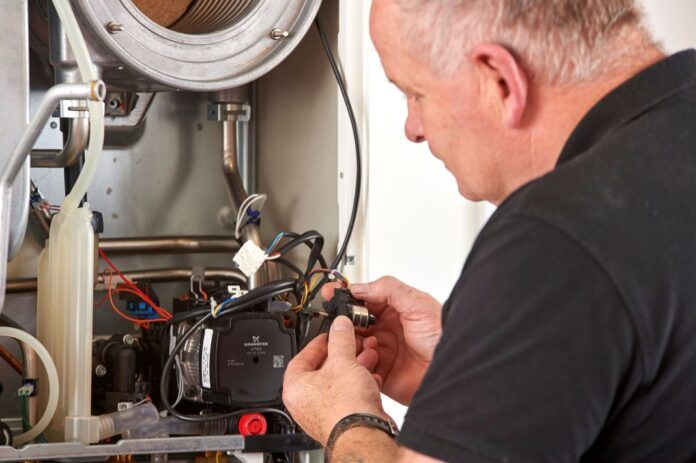
In the run up to Gas Safety Week (12-18 September), Jonathan Kidner, product engineer at Alpha, shared the company’s views on why installers have such a critical part to play.
At the end of last year, we commissioned research that revealed a worrying number of homeowners in the UK are either turning a blind eye or are ill-informed when it comes to gas safety in the home. The findings showed that incredibly 63% do not check and replace batteries in their home carbon monoxide detector and more than 40% are failing to have their annual boiler service, simply because it costs too much. As the cost living crisis deepens, this stat is only likely to increase as people are forced to make some tough decisions – and for some, this could end up costing them their life.
As a minimum, installers have a responsibility to ensure gas appliances are fitted correctly and meet the required safety standards. However, as an industry, we also have a collective duty of care to ensure homeowners are armed with the facts. Alongside gas service engineers, installers are uniquely placed to educate consumers, from right inside their own home.
We know from talking to our installers that following an installation many of you already spend time with the homeowner explaining how to operate their new appliance and maximise its efficiency. But how often do you have a conversation about gas safety? If the answer is ‘rarely’ or ‘not at all’, consider the role you could play as the first line of defence in keeping your customers ‘gas safe’. In short, the conversations you have with homeowners have the power to save lives – and it all begins with a cup of tea.
- One lump or two? Say ‘yes’ to that cuppa and engage the homeowner in a conversation while the kettle boils. A few simple questions to test their knowledge will help identify and create teaching moments. For example, ask if they know how to spot the signs of a gas leak – and if not, tell them what to look out for. While the most obvious sign is the smell of gas, lesser-known symptoms such as feeling lightheaded, dizziness, nausea and headaches can also indicate something is wrong.
- Ask the homeowner to point out where their smoke alarm and carbon monoxide detectors are. Do a quick test together to make sure they’re fully operational – and remind the homeowner they should be testing them regularly, ideally every week. Not every home has a carbon monoxide detector though so in this instance, explain the benefits. This relatively low-cost item will help them sleep at night for less than £20 from Screwfix. If they don’t believe you, pull it up on your phone and show them!
- Include a quick tutorial on finding and switching off the main gas emergency control valve when you’re showing the homeowner how to operate their new appliance. While you’ve got their attention, you can demonstrate how, in the event they smell gas, they can cut off the supply quickly and safely before calling for assistance.
- Print stickers with the contact number for the National Gas Emergency Service to give to homeowners. They can stick them in their contacts book or directly onto an appliance, such as their boiler. This simple act will arm homeowners with the information they need in the event of an emergency.
- If you’re savvy on a computer, create a branded checklist for homeowners as a ‘leave behind’. This could include helpful tips if they suspect a gas leak, including opening windows, waiting outside for a gas engineer, and knowing when to go to hospital. Remember to also share the things to avoid doing as well – for example, switching on a light or using a mobile phone, which could cause a spark.
- Finally, keep a date book of the boiler installations you’ve done and make it part of your customer care activity to send out a boiler service reminder to customers ahead of the first anniversary of their installation, including advice on finding a Gas Safe engineer. This will hopefully encourage the homeowner to commit to annual servicing – and reaching out in this way demonstrates a duty of care that will likely generate positive recommendations and referrals for your business too.
